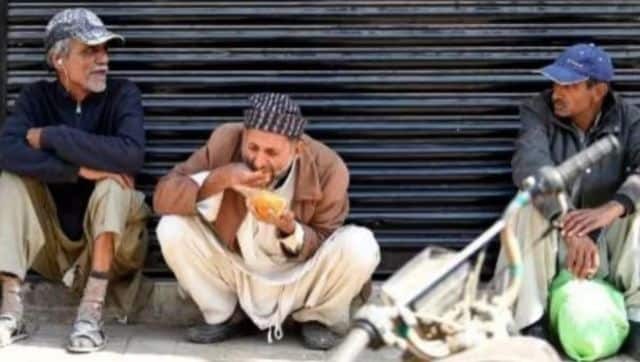
A spokesman at Pakistan's statistics bureau said inflation number was highest ever year-on-year increase recorded by the bureau since monthly records began in the 1970s. Representational image. AFP

A spokesman at Pakistan's statistics bureau said inflation number was highest ever year-on-year increase recorded by the bureau since monthly records began in the 1970s. Representational image. AFP
Islamabad: As skyrocketing inflation continues to burn holes in the pockets of Pakistanis, it has been revealed that around 90 per cent locals in cash-strapped Pakistan are nowadays preferring to eat at home and reduced their frequency of dining out.
This was revealed in a survey conducted by Gallup Pakistan — a research organisation. It found out that a whopping nine out of 10 people in Islamabad (89 per cent) have reduced their visits to hotels and restaurants, local media reported.
Instead, the majority of the respondents now prefer to enjoy food at home with their loved ones.
It was also revealed that just nine per cent people said that they go to hotels and restaurants as frequently as they did before as inflation has not impacted their dining habits in any significant way.
The shocking results of the survey sheds light on the impact of inflation on Pakistan’s food and hospitality industry, which may have to adjust its business strategies to remain competitive in the market.
As per reports, hotels and restaurants might have to think about offering affordable menu options and put focus on delivery services.
Inflation
In a major setback for the Shehbaz Sharif-led Pakistani government, the consumer price inflation in Pakistan jumped to a record 35.37 per cent in March compared to the same period last year, as at least 16 people were killed in stampedes for food aid, Reuters reported.
The inflation number for the month of March eclipsed February’s 31.5 per cent, the statistics bureau said, as food, beverage and transport prices surged up to 50 per cent year-on-year.
Over the past few days, several videos were shared online wherein thousands of people can be seen gathering at flour distribution centres set up across the country, some as part of a government-backed programme to ease the impact of inflation.
Thousands of bags of flour have also been looted from trucks and distribution points, according to official records.
A spokesman at the statistics bureau said the inflation number was the highest ever year-on-year increase recorded by the bureau since monthly records began in the 1970s. “This is the highest ever inflation recorded in the data we have,” he said.
The government agency further revealed that the annual food inflation in March was at 47.1 per cent and 50.2 per cent for urban and rural areas respectively, while the core inflation, which strips out food and energy, stood at 18.6 per cent in urban areas and 23.1 per cent in rural areas.
IMF Bailout
Over the past few months, Pakistan has been dealing with a severe economic crisis situation with an acute balance of payments crisis while talks with the International Monetary Fund (IMF) to secure $1.1 billion funding as part of $6.5 billion bailout agreed in 2019 have not yet yielded fruit.
Moreover, the country’s foreign exchange reserves have fallen to cover barely four weeks of imports.
Recently, Pakistan’s finance ministry issued a monthly economic outlook report projecting high inflation.
According to Reuters, the report cited market frictions caused by relative demand and supply gaps of essential items, exchange rate depreciation, and the recent upward adjustment in fuel prices as reasons behind higher inflation expectations.
(With inputs from agencies)
Read all the Latest News, Trending News, Cricket News, Bollywood News,
India News and Entertainment News here. Follow us on Facebook, Twitter and Instagram.